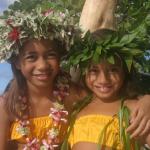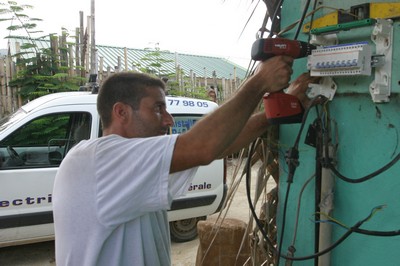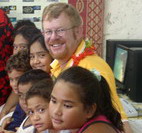travel report and societal questioonning
{jcomments on}PDF : 2011 New Zealand journey and societal questionning
Puna Reo visited New Zealand, and lived there a strong cultural experience. This travel took place at the invitation of Papa Ariki Morehu, rangatira of Te Arawa tribe, in Rotorua region, of over 50,000 Maori. Dozens of kindergartens, primary schools, secondary schools and universities contributed for us to live extraordinary moments, and we met some of their administrative and cultural leaders.
The Puna Reo was shown a vibrant Maori culture, respectful of its past, rooted in modernity, with societal projects, social and economic achievements, and above all a projection into the future of Maori’s youth leaving the education system with the tools to face the modern world and the desire to be actors and drivers of their New Zealand Society.
This report presents this experience, resulting identity issues, and witnesses a successful Maori education, as well as their offering to us of their pedagogical tools and know-how. Will we know how to accept those gifts ?
A – April 2011 Travel Report
During our travel, we were given to appreciate the magnificent achievements of Maori, a real educational, social, cultural and economical success story across the Pacific.
This journey of the Puna Reo brought us in contact with many immersive schools of all levels, from kindergarten to university and adult education and even language courses broadcast by radio. Far from being marginalized, these schools involving tens of thousands of students are funded largely by the national education system, and have very modern facilities. .
Maori education shows a great emotional involvement on the part of its teachers, who are carefully selected on humane criteria as well as ability. Degrees are not everything, every teacher must be approved by a committee of elders on their cultural ability. Likewise, a school record follows the path of the child from the kindergarden, allowing successive instructors to better understand the child, and adapt to him.
Maori education, based on its culture and principles, now uses the modern tools at hand, such as electronic books or video conferencing.
Proof of the effectiveness of its education, the curriculum of Kohanga Reo, Maori language immersion kindergardens, has been taken up for mainstream education in English. This curriculum greatly facilitates the creativity of children, using as much as possible the elements found in nature, favoring simplicity and practical intelligence. This simplicity is also reflected in efficient buildings for the education of children.
Each Kohanga Reo, despite access to all educational documents and materials of the curriculum, remains master of his teaching, adapted to its own culture, which will be linked to his tribe or his family history.
The language learning for adults is very relaxed, with breaks every quarter of an hour, a playful environment, songs and gestures, for a surprising result, a motivation that lasts and students who progress over the months and years.
In all aspects of Maori life culture is the basis, with respected and codified protocols for many events, protocols which have been researched and are subject of consensus.
The individual is defined above all by his pedigree, that of his tribe, his family and the knowledge of his land and the elements that compose it.
A prayer is always given, whithout concept of religion, refocusing the individual in a broader context, the good of the environment, of others, etc.
For any social project, the importance of a committee of elders is recognized, and despite their qualifications, young people are respectful of their opinions.
Traditionally, problems are solved not in court, but by locking up in the marae’s Fare Nui, and never come out until a solution has been adopted unanimously.
Thirty years ago, all the statistics on Maori were the worst of the population of New Zealand, in matters of education, health, crime. Since then, through numerous educational and social programs initiated by Maori educational organizations, these statistics have evolved and attest the success of language immersion, a success recognized by the government and all throughout the Pacific world.
Kids and teenagers from this system are balanced and confident, with a vision for the future and personal dreams. Many are working toward careers in law, some are judges, and communication careers are sought, in order to be heard.
Many parents, after helping the Kohanga Reo, have themselves strengthened their language and identity, through reo Maori courses and training in management, education, information technology. Improved by those knowledges, having regained confidence in themselves, many did became entrepreneurs.
When properties are subject to Maori community management, managed or leased to outside companies, there is a supervising committee to ensure good management of its property. Often, the profits are reinvested for community projects, such as aids for seniors and scholarships for students.
In the concept of land ownership by the community, the sale is prohibited, even if the exchange is possible with other Maori entities.
During our travels, we visited a number of touristical sites, community-managed, or owned by Maori, such as the Waitomo Caves, Te Puia cultural center or a place of cultural performance as Mitai Village. Often, management has been recovered after a fight for the traditional rights, or are the subject of agreements with the government..
We were particularly impressed with the model of agricultural and forest management, where Maori communities rent their land, while having an supervising committee elected by the Maori right-holders.
The committee may decide to suspend the rental agreement if the management is not efficient enough. Also, committee members are subject to re-election, or not, depending on their work and competency
There is a real entrepreneurs culture for many families that do not depend on the expertise of outsiders.
Whenever possible, the development of patrimony causes dividends for families and the community, contrary to what you can see here in Tahiti where the owners are legally deprived of their rights.
A success due to the struggles of Maori to assert their rights, based largely on interpretations of the Treaty of Waitangi, struggles more and more effective thanks in particular to the growing number of Maori lawyers who adopt their causes.
In particular, we arrived the day after the signing by Papa Te Ariki of government recognition of the rights of his tribe on the shores of their region, a victory achieved after 19 years of struggle, a great moment of joy and pride, although much remains to be done.
B – Maori and maohi Cultural Identity
According to UN « culture should be regarded as the set of distinctive spiritual, material, intellectual and emotional features of society or a social group, and that it encompasses, in addition to art and literature, lifestyles, ways of living together, value systems, traditions and beliefs »
1. Cultural identity
Papa Te Ariki Morehu, recently honored Companion of the Order of Merit of New Zealand for his achievements, having worked for years for its culture, particularly as a member of the administration board of the hundreds of Kohanga Reo, mentioned us the pride and pleasure to hear children speak reo Maori, happy to see how this education was producing beautiful Maori.
Ourselves here in Tahiti, what do we think of our education, given the number of children that emerge socially inapt ? Do we want a social and educational program for the success of the Polynesians? If the leaders of our country wanted to produce beautiful maohi, they would need to provide the means of maohi education, modern and open to the world.
Our Polynesian identity is made up of ethnic mixing, we recognize this as an asset and do not want to reject anyone. But on this Maohi land, culture comes from our tupuna, rooted in Moana Nui A Hiva, and each parent should be proud as them of their culture. He should be able to make choices of education, between French education as we know it today, or maohi education carrying values of social life, tolerance, respect for others and nature, which has made us the hospitable people recognized worldwide.
2. A societal questionning
In order to establish a maohi education, some issues must be addressed by politicians, elected officials, government agencies, as well as lawyers, linguists, sociologists, researchers, educators and individuals involved in culture. For example:
– What are the real powers of the country for education?
– How to be more assertive against the National Education?
– How to understand the legal status of internal autonomy in relation to education ?
– How to understand the treaties of annexation in both languages, and their implications. ?
– How to regain reo tahiti official language status lost in 1984?
– How to benefit from indigenous people’s achievments around the world ?
– How to have immersive kindergardens and schools accepted ?
3. Maori and Puna Reo propositions
In meetings with leaders of Maori education dies immersive, from nursery to university, especially Titoki Black, executive director of the Kohanga Reo, we received a number of offers of help and support. Culturally considering us as their older brothers, from where their ancestors canoes departed, they are willing to put their experience available, providing access to their management, their educational curricula and their materials, to allow people coming to study their systems, or even send a delegation of educators to Tahiti in order to show their education ways of doing and being.
The Puna Reo, back to the fenua, thus act as spokesman for those serious offers, and proposes to relay the local willingness of those who wants to participate in language revival, whether for children or adults, to study the Maori example, then leaving each one to continue the work he deems appropriate in accordance with his capabilities.
Puna Reo project, recognized by the Maori, is first to set up a kindergarden in total immersion, while preparing an integrated immersion at primary school. This cultural project of education, free of any political hue, has the ability to flourish in all the municipalities who wish and manifest it,
This project is for us the answer to many questions of our political leaders lamenting the inability of young people to speak reo maohi, and their lack of culture. We believe that this is a solution to school and social failure, and experience of Maori people, as well as some local families, proves it. If you consider the validity of our social project, act so, and bring us your aid, support and thoughts by contacting us on our website www.punareo.pf.
A poem for Hepa
You May Also Like

Activities for the children
30/10/2006
Electrical Puna Reo !
01/08/2010